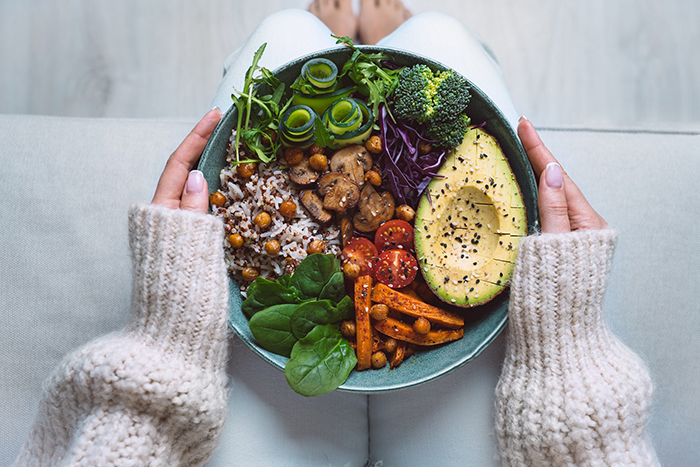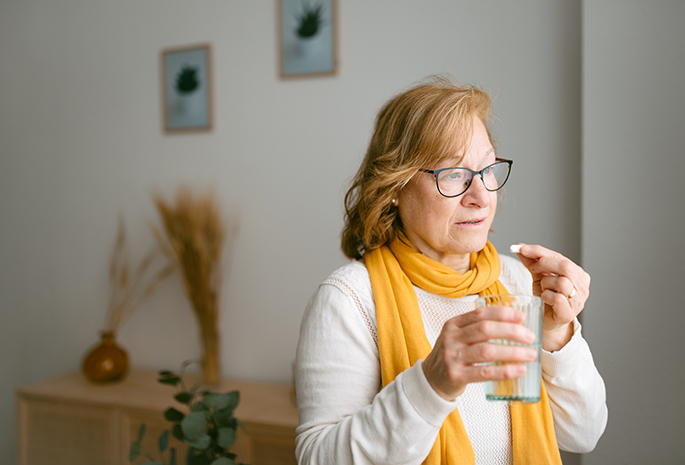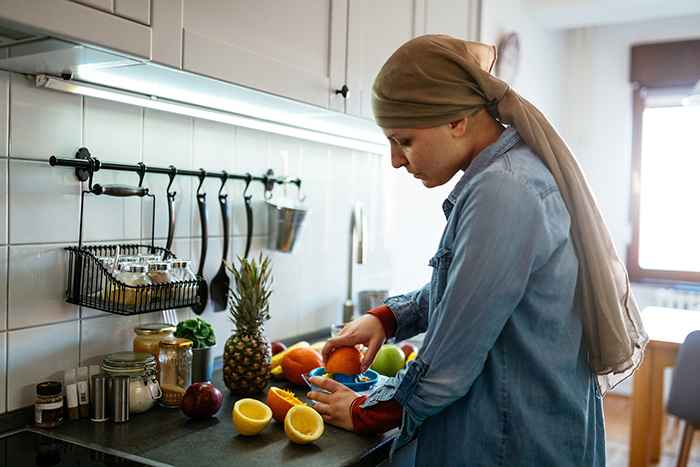When you want to lower your risk for cancer, what you eat can help. While some people have a higher risk of developing cancer due to genetics, research shows good nutrition alone could prevent nearly 25% of all cancer cases. And a healthy diet may help patients with cancer better manage treatment-related side effects.
But what is a healthy diet? The American Institute for Cancer Research recommends the New American Plate, a filling, balanced, and nutritious approach to eating. The plan calls for vegetables, fruits, whole grains, and beans to make up at least two-thirds of each meal, and animal protein to make up the rest. Essentially, it’s a creative and flexible plant-based diet.
Plant-based diets focus on fiber, vitamins, and other natural substances, such as phytochemicals, to promote good health. The diet doesn’t prohibit eating meat but does limit portion size. And this diet can:
- Strengthen your immune system to help fight disease
- Reduce harmful inflammation to protect arteries, organs and joints
- Balance hormone levels, which can improve sleep and mood
- Improve your bowel health
- Help you manage your weight
Rachel Keller, MS, RD, a clinical dietitian at Winship Cancer Institute of Emory University, encourages people to follow a plant-based diet to prevent and fight cancer. “Good nutrition can’t solve everything,” she says. “But it is something we can do every day to take control of our health.”
Keller says people first notice healthier bowel movements when transitioning to a plant-based diet. “A plant-based diet is high in dietary fiber, which increases the weight and size of your stool and softens it,” she says. “Healthy bowel movements are a sign of good gut health, which lowers your risk for heart disease, obesity, and other conditions that make you sick and more likely to get cancer.”




